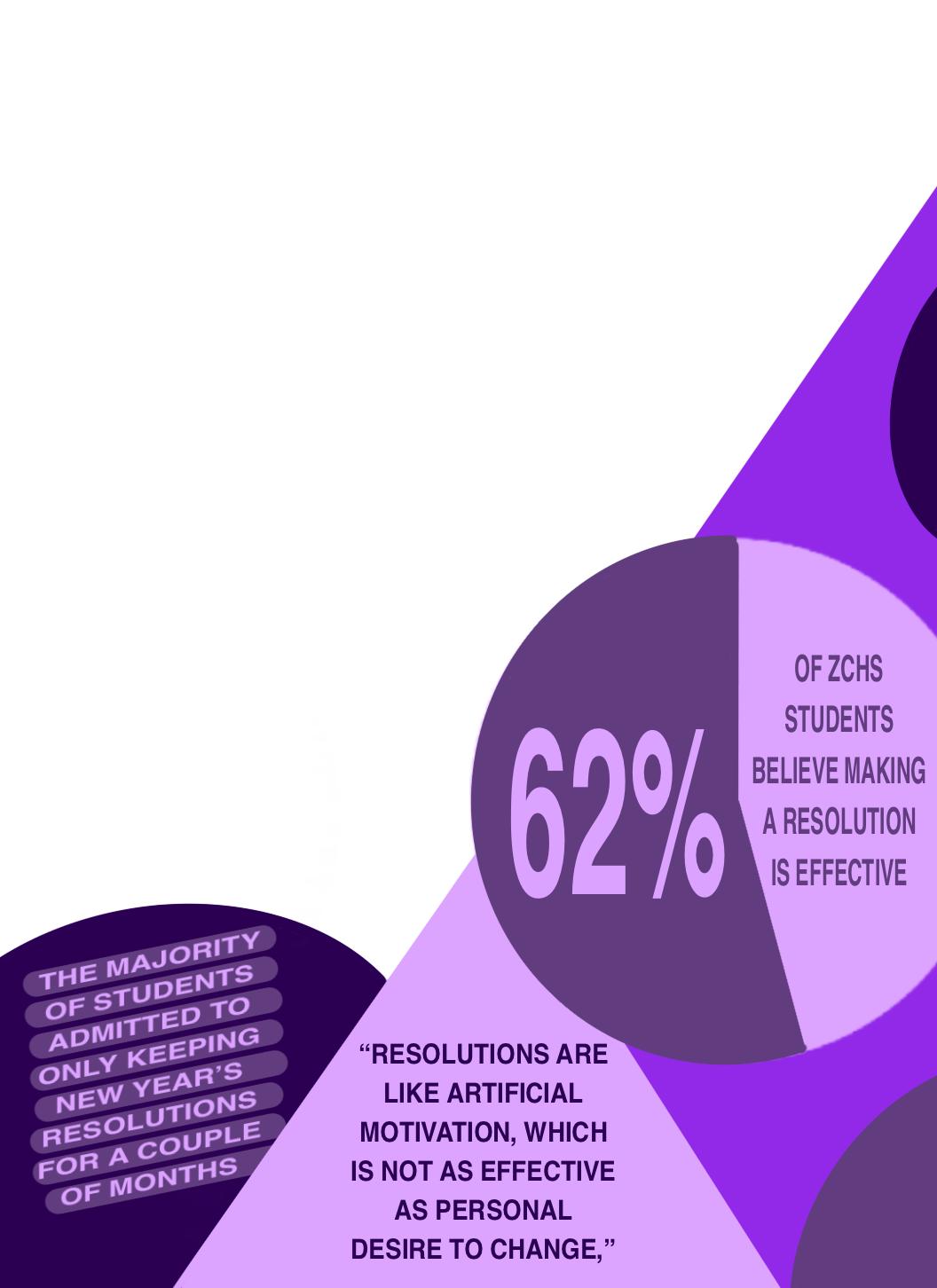
2 minute read
New Year Nothing New
Are New Year’s resolutions actually effective?
By Brooklyn Brown, Art Director
Advertisement
The first month of the year has already come and gone, and those goals you set for yourself at the beginning of the month might be starting to feel even more out of reach. You might have started the year off right; maybe you made yourself a bitter tasting green smoothie, posted a filtered 2021 recap on your socials, and ended the day by following a workout video on YouTube. But I’m guessing it didn’t take long to realize however, that a day of sudden changes did not leave you feeling very ‘New Year, New You’. It can seem impossible to hold yourself accountable for your own resolutions, and the inevitable letdown can leave you with more guilt and disappointment than before you even decided you wanted to improve yourself. The truth is, the first day of January does not come with a reset button. Trying too hard to change overnight can lead to guilt when you ultimately are unable to reinvent yourself. It’s no fault of your own; a study from the University of Scranton shows that only 8% of people who have made a New Year’s resolution were able to meet their goal. The notion that New Year’s goals are something of a mandatory custom has become ingrained in everyone. This mindset is completely counterproductive when it comes to actually achieving your resolutions. A smarter way to change for the better is to broaden the range of time you give yourself to do so. According to the American Psychological Association, healthy behaviors develop best over a period of time. According to bbc.com, allowing yourself enough time might even mean working towards your goals before Jan 1. It can be much healthier to begin the steps towards improvement on a random Tuesday rather than New Year’s Day. The act of procrastinating until the first day of the new year can actually build up a level of anxiety to the extent that people struggle to actually act on the thing they’d been intending to. In an interview with the American Psychological Association, Psychologist Lynn Bufka, PhD. said, “Setting small, attainable goals throughout the year, instead of a singular overwhelming goal on Jan. 1., can help you reach whatever it is you strive for.” So, maybe your New Year’s Resolution this year should be to have no New Year’s Resolutions at all. Just because you might not have met your New Year goal on Jan. 1, doesn’t mean you have to wait all the way until next year to get back on track. You don’t have to even start today, find freedom in the fact that you can make a change in your life at any time. One step at a time, work towards a better you!
Taken from a Google survey of 53 students. graphic by Brooklyn Brown









